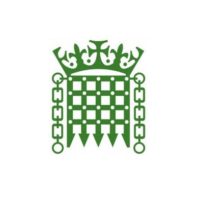Inside the Digital Services Tax
by on 13th Mar 2020 in News


As part of the recent UK budget, the government confirmed that it is pressing ahead with its somewhat controversial Digital Services Tax.
As reported by the Financial times, the UK plans to raise £500m a year by applying the tax primarily to large US tech companies. It is being seen as a means to secure money in relation to allegations that many large tech outfits are not paying enough tax in the areas in which they operate, instead using low tax territories or focusing on where headquarters are based. For example, according to the BBC Facebook paid £28.5m in corporation tax in the UK through 2018. That may sound like a towering amount, but the company enjoyed £1.65bn from British sales that same year.
It should be noted that the Digital Services Tax was not front-and-centre of the budget announcement itself, but instead via associated treasury documents.
The move, confirmed as going ahead by the UK chancellor Rishi Sunak, will see a levy applied to revenue raised from UK sales and activities by such companies. It could reasonably seen as part of the UK government's broader push back on major tech companies. Sunak is also giving more power to the UK’s competition regulators, with a view to policing “digital platforms with strategic market power”.
"The government is introducing the Digital Services Tax (DST) from April 2020, to ensure certain digital businesses pay tax reflecting the value they derive from UK users," read a statement by Mel Stride MP in a consultation document on the proposed levy. "The DST is proportionate, narrowly-targeted, and is intended to ultimately be a temporary tax, to be replaced by a comprehensive global solution. The government recognises this is an issue of significant interest to businesses."
The new Digital Services Tax - also known as the 'digital sales tax' - will apply a 2% levy to the likes of social media platforms, online marketplaces and search engines. Tax avoidance rightly isn't popular; especially when allegedly practised by extremely wealthy global corporations. And securing money that could be understood as being owed to the UK state will be good for all. So why the controversy?
Since the Digital Services Tax was proposed in the 2018 budget, there have been a number of concerns. For one, it may negatively influence post-Brexit trade talks ongoing between the US and UK. US president Donald Trump had already threatened imposing tariffs in retaliation to the levy back in January. Indeed, France has faced similar threats from the US administration after it began to plot out its equivalent digital sales tax.

The new levy brings up an interesting point; what counts as 'social media'?
The other concern may be more pressing to some UK tech companies. The levy does only impact search engines, digital marketplaces and social media platforms that generate revenues of more that £25m in the UK, but there are concerns about double taxation. UK companies remain beholden to EU competition rules as the Brexit withdraw process plays out, meaning they will not be able to offset tax paid as part of the coming Digital Services Tax.
What might this mean for the video game industry? It's hard to say. The Digital Services Tax is not yet set in stone, and still open to changes in its make-up, structure and detail. However, there's a chance the impact could be felt across social media; both a powerful tool for promoting games, and a platform for playing them. Most global game companies with UK headquarters are unlikely to be affected as they do not fall under the criteria of companies that the levy will apply to. So far, so uncertain, though things do not look too concerning.
However, many of the companies deliberately targeted by the levy will make money in the UK through advertising services. As such, we may see an influence on the finer detail of the advertising ecosystem here in the UK, as large overseas tech companies fine tune their approach to providing, filling and servicing ad space.
But what about the provision of games as online services, and the presence of digital game stores that serve the UK, while being the offering of global companies? A digital store is certainly an 'online marketplace' and one could consider the likes of season passes and online subscriptions as sold digital items.
However, in the aforementioned official treasury consultation document it was stated that: "The government does not intend to apply the DST to revenues generated from the direct sale of online content (e.g. TV or music subscription services, online newspapers etc) where the business either owns the content or has acquired the right to distribute content. The government believes that this is similar in principle to the online sale of goods. The government believes that, in general, this principle should extend to online games, and console games that allow users to play with/against other users on an online network.
"However, there are online games that share similar features to social media and online marketplace business models e.g. those that benefit from the sustained engagement of a large user base that is encouraged to build networks, communicate and enter into exchanges. The government believes that there is a need to reflect further on how such online games should be characterised against the definitions above."
A final decision on that point has not yet been made, but it could be that game's ability to be social and foster communities could bring them into the remit of the new digital services tax. What that may mean is yet to be seen.
More official information on the digital services tax can be found here.
AdvertiserAdvertisingGovernmentMonetisationNorth AmericaRegulationSocial MediaTechnologyUncategorizedUS







Follow TheGamingEconomy